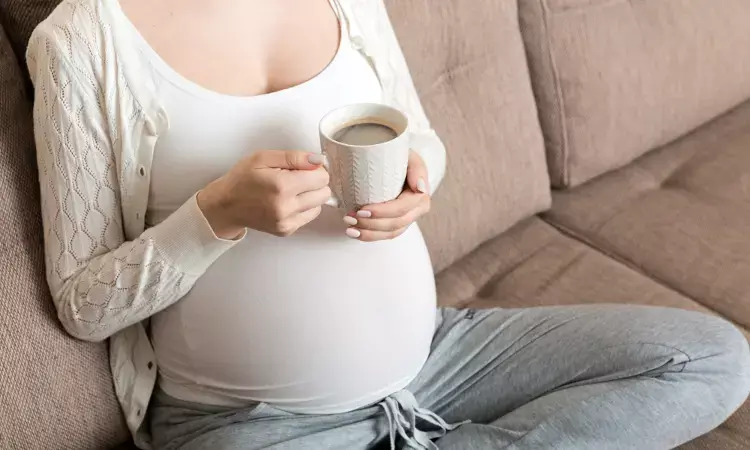- Home
- Medical news & Guidelines
- Anesthesiology
- Cardiology and CTVS
- Critical Care
- Dentistry
- Dermatology
- Diabetes and Endocrinology
- ENT
- Gastroenterology
- Medicine
- Nephrology
- Neurology
- Obstretics-Gynaecology
- Oncology
- Ophthalmology
- Orthopaedics
- Pediatrics-Neonatology
- Psychiatry
- Pulmonology
- Radiology
- Surgery
- Urology
- Laboratory Medicine
- Diet
- Nursing
- Paramedical
- Physiotherapy
- Health news
- Fact Check
- Bone Health Fact Check
- Brain Health Fact Check
- Cancer Related Fact Check
- Child Care Fact Check
- Dental and oral health fact check
- Diabetes and metabolic health fact check
- Diet and Nutrition Fact Check
- Eye and ENT Care Fact Check
- Fitness fact check
- Gut health fact check
- Heart health fact check
- Kidney health fact check
- Medical education fact check
- Men's health fact check
- Respiratory fact check
- Skin and hair care fact check
- Vaccine and Immunization fact check
- Women's health fact check
- AYUSH
- State News
- Andaman and Nicobar Islands
- Andhra Pradesh
- Arunachal Pradesh
- Assam
- Bihar
- Chandigarh
- Chattisgarh
- Dadra and Nagar Haveli
- Daman and Diu
- Delhi
- Goa
- Gujarat
- Haryana
- Himachal Pradesh
- Jammu & Kashmir
- Jharkhand
- Karnataka
- Kerala
- Ladakh
- Lakshadweep
- Madhya Pradesh
- Maharashtra
- Manipur
- Meghalaya
- Mizoram
- Nagaland
- Odisha
- Puducherry
- Punjab
- Rajasthan
- Sikkim
- Tamil Nadu
- Telangana
- Tripura
- Uttar Pradesh
- Uttrakhand
- West Bengal
- Medical Education
- Industry
Maternal BMI Linked to Increased Risk of Sleep Apnea in Offspring: Study

Researchers have found that maternal overweight and obesity during early pregnancy are associated with an increased risk of sleep apnea in their offspring. This conclusion comes from a comprehensive nationwide cohort study conducted in Sweden, which analyzed data from over 3 million singleton live births between 1983 and 2015. The study was recently published in Journal of Clinical Sleep Medicine by Mia Q Zhu and colleagues.
Sleep apnea, a serious sleep disorder characterized by repeated interruptions in breathing, has significant health implications for affected individuals. Previous research has suggested that early-life factors may play a role in the development of sleep apnea. This study aimed to investigate the association between maternal early pregnancy body mass index (BMI) and the risk of sleep apnea in offspring, providing crucial insights into potential early predictors of this condition.
The study included 3,281,803 singleton live births in Sweden, born between 1983 and 2015. Researchers utilized national registers with prospectively recorded information to follow participants for a sleep apnea diagnosis from the age of 2 up to 35 years. Sleep apnea risks were compared across different maternal early pregnancy BMI categories using hazard ratios (HR) with 95% confidence intervals (CI) derived from adjusted Cox models. To address potential confounding by factors shared within families, sibling-controlled analyses were also conducted.
During the study period, 17,830 individuals were diagnosed with sleep apnea. Maternal early pregnancy BMI was positively associated with offspring sleep apnea risk.
Compared with women with normal BMI (18.5-24.9), the adjusted HR (95% CI) of offspring sleep apnea for maternal BMI categories were:
• Overweight (BMI 25.0-29.9): HR 1.14 (1.09, 1.19)
• Obesity Class I (BMI 30.0-34.9): HR 1.28 (1.20, 1.36)
• Obesity Class II or III (BMI ≥35.0): HR 1.40 (1.27, 1.54)
Sibling-Controlled Analyses: Representing risk changes for maternal BMI differences between pregnancies, the HR (95% CI) were:
• Overweight: HR 1.13 (1.01, 1.26)
• Obesity Class I: HR 1.17 (0.97, 1.42)
• Obesity Class II or III: HR 1.32 (0.97, 1.80)
• The HR by siblings' maternal BMI were attenuated, suggesting a weak role for shared familial factors in the association.
• Other pregnancy, birth, and neonatal complications were also associated with offspring sleep apnea risk but did not substantially mediate the association with maternal obesity.
The findings from this extensive cohort study underscore the importance of maternal health during early pregnancy. The dose-response relationship between maternal BMI and offspring sleep apnea risk suggests that higher maternal BMI is a significant risk factor. This information could be crucial for healthcare providers in counseling and managing expectant mothers, particularly those with higher BMI, to mitigate potential long-term health risks for their children.
This landmark study reveals that maternal overweight and obesity during early pregnancy are associated with an increased risk of sleep apnea in offspring. These findings highlight the need for early intervention and targeted strategies to manage maternal BMI, potentially reducing the risk of sleep apnea and improving health outcomes for future generations.
Reference:
Zhu, M. Q., Cnattingius, S., O’Brien, L. M., & Villamor, E. (2024). Maternal early pregnancy body mass index and risk of sleep apnea in the offspring. Journal of Clinical Sleep Medicine: JCSM: Official Publication of the American Academy of Sleep Medicine. https://doi.org/10.5664/jcsm.11228
Dr Riya Dave has completed dentistry from Gujarat University in 2022. She is a dentist and accomplished medical and scientific writer known for her commitment to bridging the gap between clinical expertise and accessible healthcare information. She has been actively involved in writing blogs related to health and wellness.
Dr Kamal Kant Kohli-MBBS, DTCD- a chest specialist with more than 30 years of practice and a flair for writing clinical articles, Dr Kamal Kant Kohli joined Medical Dialogues as a Chief Editor of Medical News. Besides writing articles, as an editor, he proofreads and verifies all the medical content published on Medical Dialogues including those coming from journals, studies,medical conferences,guidelines etc. Email: drkohli@medicaldialogues.in. Contact no. 011-43720751


